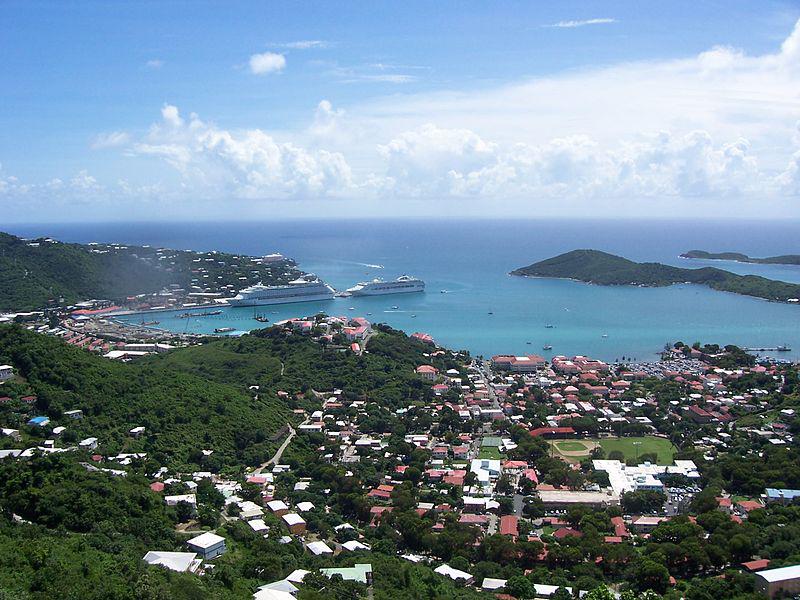Here’s something you probably didn’t know: The U.S. Virgin Islands are experiencing a catastrophic recession.
According to data released yesterday by the Commerce Department’s Bureau of Economic Analysis, real GDP on the islands declined 13.2 percent in 2012 after falling 6.6 percent in 2011. That’s terrible.
But it also seems traceable to problems at just one company, the Hovensa oil refinery—a joint venture between Hess and the Venezuelan state oil company that refines Venezuelan crude. The global recession of 2008-09 took a hammer to oil consumption in rich countries, and even as U.S. output has surpassed its pre-crisis peak, U.S. oil consumption still hasn’t. And while demand growth has shifted to the developing world, developing countries have also built new modern refineries. That led Hovensa to pile up $1.3 billion in losses over the course of 2009-11 before shutting down in 2012. The refinery was the largest private employer on the island, so its shutdown—paired with an associated decline in governmnet spending as refinery-related tax revenue fell—has driven the Virgin Islands into their funk.
Not coincidentally, the unemployment rate has soared:
This is probably a good example of how structural factors and nominal factors intersect. The fact that the territory’s single largest company and export industry collapsed in the face of changing market conditions is a classic case of a “real” shock. When something like that happens, people are bound to become poorer and living standards are going to decline. But why would that decline in living standards take the specific form of 13-plus percent of the labor force being unable to find any kind of work at all? Given the negative blow to Virgin Islands living standards wouldn’t it make sense for the newly impoverished islanders to work more rather than less?
Well, if a refinery had shut down on a fully independent island nation that might be what would have happened. The value of the local currency would have collapsed, hammering real incomes across the board. On the other hand, you’d see an influx of bargain-hungry tourists and a surge in construction activity as anyone with offshore financial assets could suddenly hire local labor for cheap. But as the name suggests, the U.S. Virgin Islands is part of the United States and has to ride on macroeconomic stabilization policies that are not designed to help the island adjust to these kind of shocks. That’s great for any islanders who have safe jobs (working for the local government, say) with dollar-denominated salaries but it ensures that the blow of a closing refinery will create mass unemployment and not “just” falling incomes.
Meanwhile, the refinery that started it all is now being used as an oil storage facility and its possible sale to a new owner is being delayed by disputes with the local authorities.
